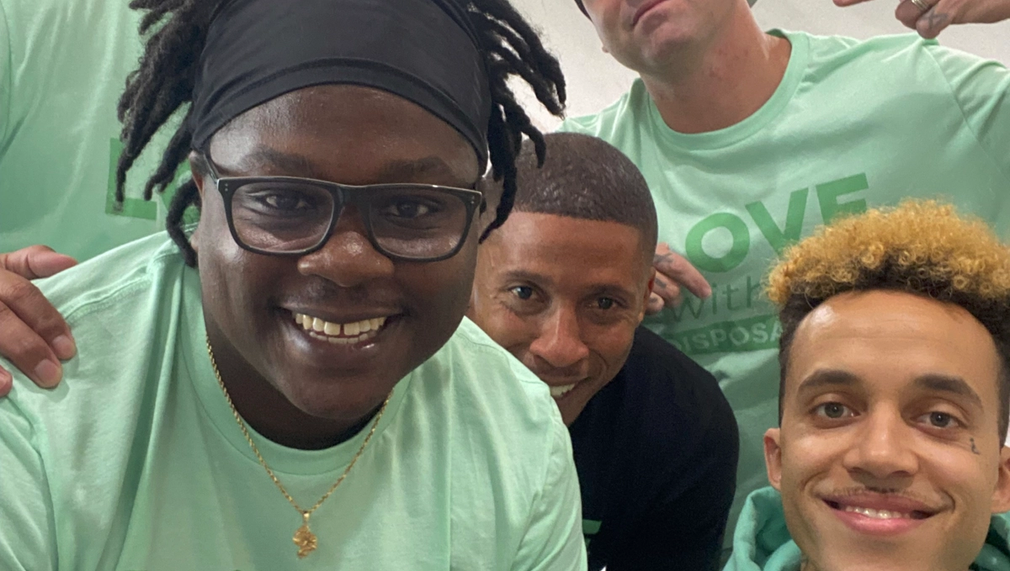Transformation in community not cages
We envision a thriving Los Angeles community where members feel safe to work and play and are making this a reality by bringing our groundbreaking transformative justice program to LAUSD schools. Our program addresses harmful and reactive behaviors that lead to suspension, expulsion and other isolating and stigmatizing punishments by helping students transform the way they think, behave and relate to each other so that they are more connected and supported.

What is the primary issue area that your application will impact?
Community Safety
In which areas of Los Angeles will you be directly working?
County of Los Angeles
LAUSD (select only if you have a district-wide partnership or project)
In what stage of innovation is this project, program, or initiative?
Applying a proven model or solution to a new issue or sector (e.g., using a job recruiting software or strategy to match clients to supportive housing sites, applying demonstrated strategies from advocating for college affordability to advocating for housing affordability and homelessness, etc.)
What is your understanding of the issue that you are seeking to address?
The school-to-prison pipeline is the process that pushes students into the criminal legal system through policies and practices that punish maladaptive behavior with suspensions, expulsions and juvenile court referrals. Once suspended or expelled, students become three times more likely to end up in the juvenile system within a year, and are 67% more likely to be incarcerated before age 25. The most common reasons cited for suspension are physical and verbal aggression and insubordination (Burker and Nishioka, 2014). Punitive measures isolate and stigmatize young people rather than offering them alternative ways to deal with complex emotions and social dynamics.This deepens trauma responses that lead to cycles of community, interpersonal and gang violence and ultimately incarceration. Young folks get stolen from their communities and put in cages at alarming rates resulting in Los Angeles County being one of the most carceral places in the country.
Describe the project, program, or initiative this grant will support to address the issue.
Success Stories Program is an alternative to prisons that builds safer communities by delivering feminist programming to people who have caused harm. We are proposing to bring our 12-week program to 2 LAUSD schools with the hope that long-term we will scale out to become a resource across the district. Since its founding in 2014, SSP has been an impactful vehicle for transformation and long term change and has supported over 2000, mostly incarcerated people, to address harmful beliefs about power, relationships and violence. Our program has also shifted culture in middle and high schools by addressing beliefs and patterns that can lead to suspension, expulsions and imprisonment. Our model centers the unlearning of destructive behaviors rooted in patriarchy and focuses on the building of new patterns around love and responsibility. Participants identify their top 5 most important people and goals and explore whether their actions and behavior serve it. This happens through a “Relate – Investigate – Recreate” model where facilitators relate to participants by sharing how they’ve personally dealt with or deal with similar thoughts and behaviors, while challenging students to investigate how these beliefs harm themselves and others and then support them in creating new perspectives and plans of action. This is all done in a safe environment where vulnerability and accountability are modeled, practiced and students bond peer-to-peer and with relatable adults (facilitators).
Describe how Los Angeles County will be different if your work is successful.
We envision a thriving LA County that uses models of accountability and belonging instead of suspensions and expulsions to address misbehavior in schools. Adolescence (ages 10-19) is a critical time in human development that sets the stage for long-term outcomes. During this time, young people learn a lot about themselves and the world around them. It is crucial that they receive positive messaging about who they are and what is expected of them so that they go on to become positive members of their communities. With LA County having the second largest school system in the nation, there’s a huge opportunity to be a leading example of how healthy, happy communities are made by supporting adolescent development. SSP is an innovative, impactful way to support this development as the model nurtures transformation by equipping students with healthy ways to deal with relationship building, conflict and self management while connecting with fellow students and the facilitators.
What evidence do you have that this project, program, or initiative is or will be successful, and how will you define and measure success?
We are currently running our 12-week program at University Middle School and Oakland Technical High School. The program has proven to resonate with students and successfully equip them with alternative tools to navigate complex situations. For instance, one of the participants was in conflict with another student, and instead of handling it by fighting, the student reached out to one of the SSP facilitators and talked through some of the things learned in the program and then was able to handle the situation in a non-violent way. In expanding our programming into LA County schools, we expect similar positive outcomes. We expect to see a decrease in the number of suspensions and expulsions related to physical and verbal aggression and insubordination, as well as an increase in faculty reports of positive behavior. Our research team will analyze pre and post participant surveys that measure qualitative and quantitative impact, interview faculty and students and debrief with facilitators.
Approximately how many people will be impacted by this project, program, or initiative?
Direct Impact: 300
Indirect Impact: 3,000